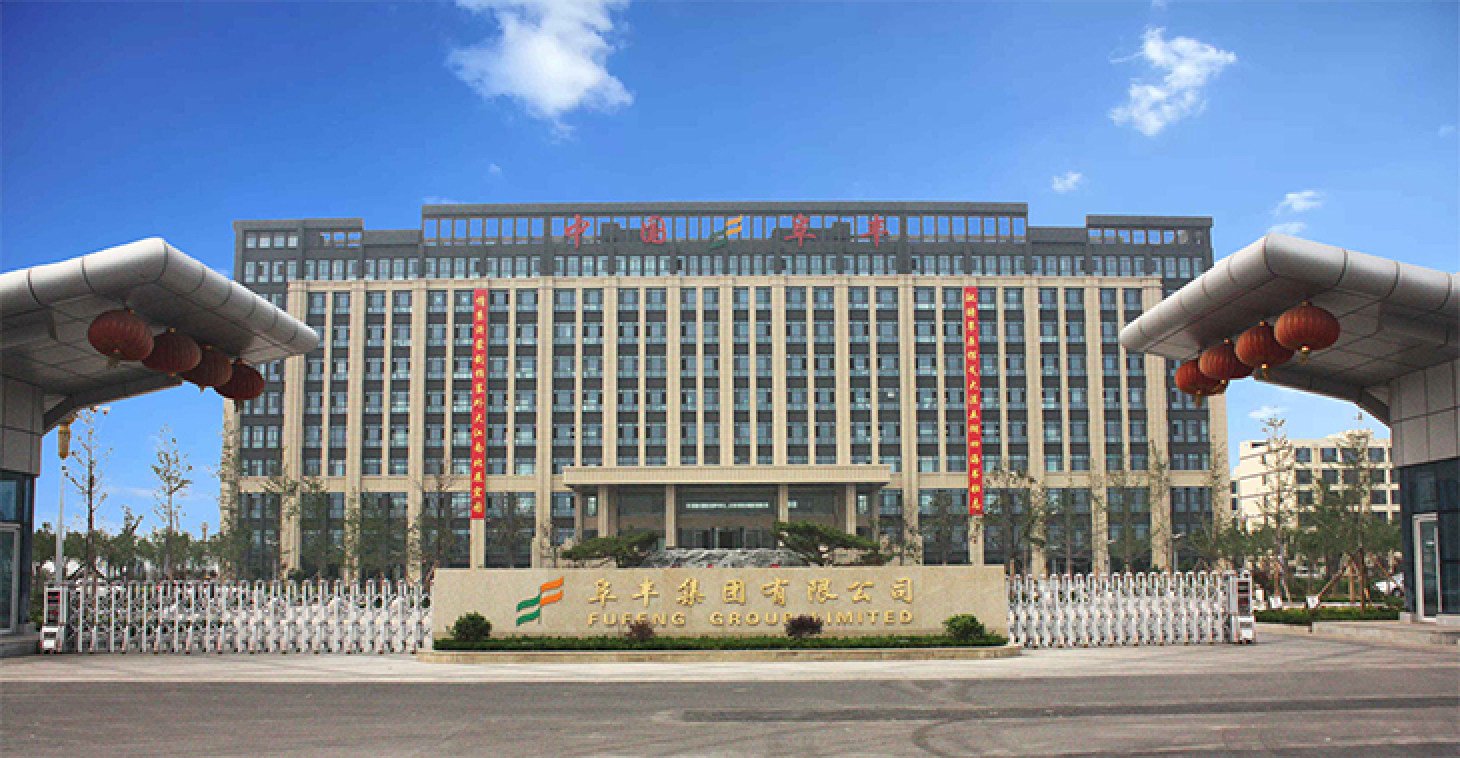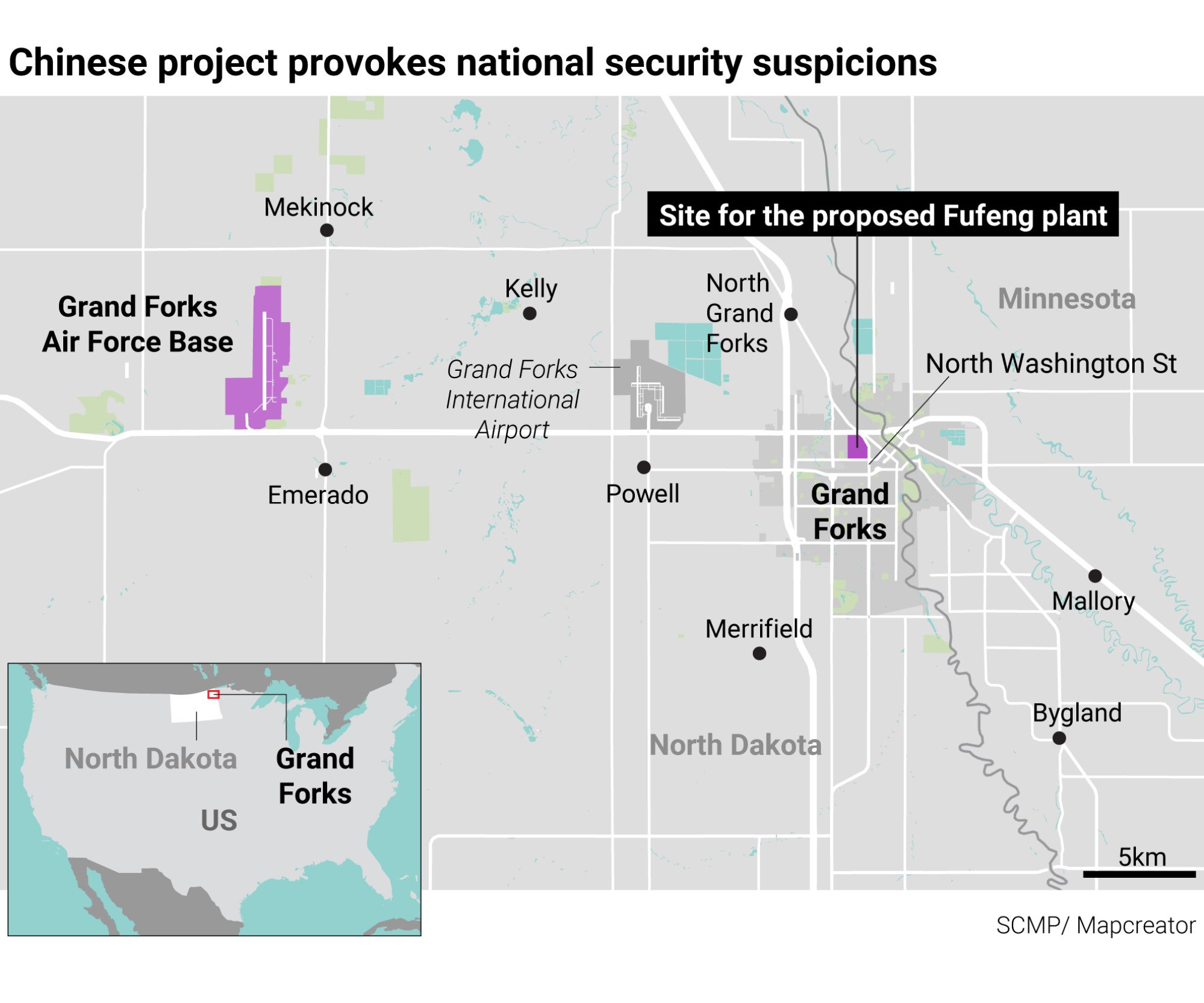
US authorities order halt to Chinese corn mill project in North Dakota on national security concern
- Grand Forks mayor says federal government ‘requested the city’s help in stopping the project’
- US Air Force letter to North Dakota senator cites ‘near- and long-term risks’ to its operations
A controversial Chinese-owned agricultural project in America’s northern plains appears headed for cancellation after the US Air Force and local officials acted on concerns that the venture might be a threat to national security.
Brandon Bochenski, the mayor of Grand Forks city in North Dakota, on Tuesday issued a statement to the media asserting that the proposed corn mill project by Fufeng USA, a subsidiary of China’s agribusiness giant Fufeng, “should be stopped”.
“The federal government has requested the city’s help in stopping the project as geo-political tensions have greatly increased since the initial announcement of the project,” he added.
The decision comes hours after Senators John Hoeven and Kevin Cramer, both Republicans from the state, shared a letter from the US Air Force to Cramer stating that “the proposed project presents a significant threat to national security with both near- and long-term risks of significant impacts to our operations in the area”.

Fufeng USA declined to comment on the development.
The city administration’s initial approvals of the project early last year prompted public concerns and outrage because of the China connection – Fufeng is based in Shandong province – and the land’s proximity to Grand Forks Air Force Base, home to US intelligence, surveillance and reconnaissance units.
The new development underscores rising suspicion about Chinese investments in the US and usage of the country’s products, all against a backdrop of bipartisan support in Washington for a harder line against Beijing.
Questions over whether the Fufeng project constituted a national security risk reached Washington, eventually triggering a review by the Committee on Foreign Investment in the United States (CFIUS) in October. But last month CFIUS concluded that the land deal was not within its jurisdiction and that it would not block the project.
In its letter dated January 27, the Air Force said that while CFIUS concluded that it did not have jurisdiction, its own view was “unambiguous”.
In a joint press release on Tuesday, Senators Hoeven and Cramer called on Grand Forks city officials to “discontinue” the Fufeng project and “instead we should work together to find an American company to develop the agriculture project”.
The Mayor’s remarks represent a startling reversal of the council’s previous position: that Fufeng USA’s purchase of 370 acres (150 hectares) of land in the city of Grand Forks from a local resident was an economic boon, the start of a US$700 million agribusiness facility on the edge of town, expected to create some 700 direct and indirect jobs and bring in up to US$1 million in added annual property tax revenue.

The members of the city council, who has long backed the project, had recently indicated a change of heart on the matter declaring that the city had not yet approved the project, claiming that they had been unaware of the company’s Chinese origins until shortly before it was made public.
During a council meeting last week, City Administrator Todd Feland, who had welcomed the CFIUS decision as “positive feedback”, had described national security risks pertaining to Fufeng’s proposed facility as “less defined” and “subjective”.
For over a year, the city officials have been under constant attack from the residents who opposed the project and believed that the CFIUS determination was not a green light to the project.
Some Grand Fork residents have called the plans to build an agribusiness facility a cover for espionage activities monitoring the air force base, about 12 miles to the west. Others have feared it could “bring Communist China” to their town.
Chinese agribusiness giant gets clearance for controversial US land sale
Though a final decision will be taken during a city council vote in the coming weeks, news of the new directives facing Fufeng USA was welcomed by some in Grand Forks city.
“The concern citizens of Grand Forks are extremely pleased that our federal government has stepped up and made the decision they have made to stop the Fufeng development”, Jodi Carlson, one of the residents who had been fighting against the Fufeng project, told the Post just before heading to a celebration by those opposed to the project.
“The citizens of this community are very disappointed in our city leaders selling out our community and our Grand Forks Air Force Base for a few dollars in economic development. We deserve better, and we will continue to pursue new leaders for our community who will actually represent the voices of the citizens”, she added.
Lea Greene, the public affairs chief for the 319th Reconnaissance Wing of the US Air Force, on Tuesday said that Grand Forks Air Force Base learned about the Fufeng project in November 2021, adding that city officials never sat down with base officials to discuss Fufeng.
“For any project of this magnitude near an Air Force base – wind farms, solar arrays, urban sprawl, composting facilities, etc – each could pose challenges to military flying missions and/or national defence objectives,” she said in an email.
“Advanced notice of any large development is always beneficial to allow us to begin assessing potential impacts to current and future operations.”

